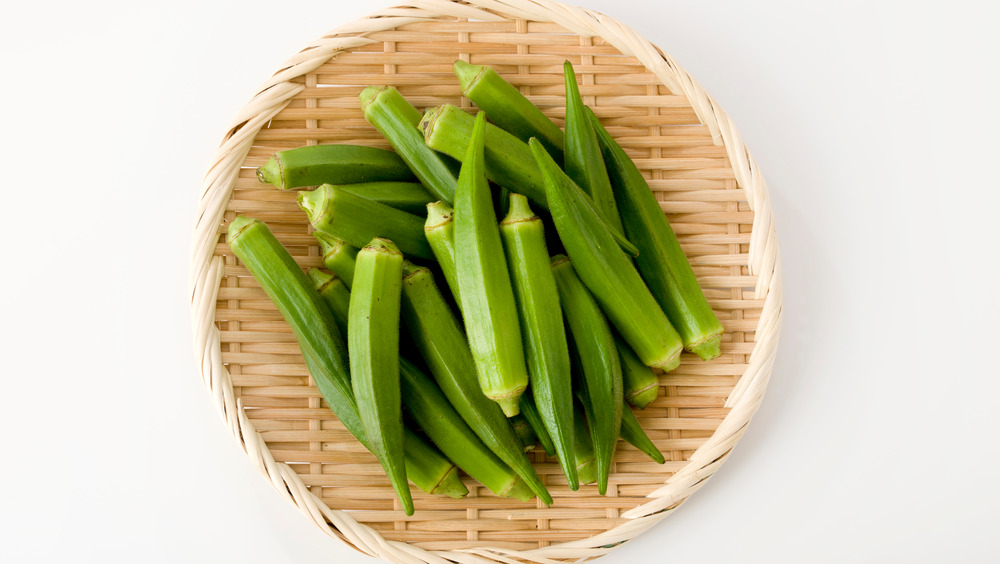You Should Start Eating More Okra. Here's Why
You might know okra better as ladyfingers or ochro, and you might have a special preference of how you like it prepared, whether that be fried, baked, pickled, roasted, or in a stew or gumbo. But okra — which is actually flowering plant, according to WebMD — is not just a delicious and versatile ingredient to enjoy at dinner; it also has many health benefits that can promote longevity and reduce the risk of certain illnesses.
To begin with, okra has a high nutritional value, and WebMD states that okra is packed with vitamins C and K, containing 26 percent of the recommended daily value of the vitamins in just one cup. Foods high in vitamin C help boost the immune system, while vitamin K plays an important role in blood clotting. Okra is also a great source of other essential vitamins, including vitamin A, vitamin B6, folate, and magnesium, according to Healthline. While this seems to be reason enough to add okra to your diet, there are several more things that'll convince you to pile it on.
Okra can help boost heart, brain, and immune system health
Healthline reports that okra contains high amounts of antioxidants, which improve the body's overall health by fighting off free radicals. In particular, it boasts high levels of polyphenols, which are antioxidants that boost heart health by helping to prevent oxidation damage and lowering the risk of developing blood clots. They are also beneficial for improving brain health, as well as reducing inflammation, per Healthline. Okra also contains a unique polysaccharide substance called mucilage, which, despite its somewhat unappealing name, actually benefits the body by helping to lower blood cholesterol levels, according to WebMD.
Okra also contains high amounts of fiber and a protein called lectin, both of which are essential elements of a healthy diet. People who consume high amounts of fiber have been shown to have a lower risk of many illnesses, including obesity, diabetes, heart disease, and stroke, while lectin may help reduce the growth of cancer cells, according to Medical News Today. In short, no matter how you like it, or what you call it, okra is a nutritious and delicious plant that makes a great addition to just about any diet.

